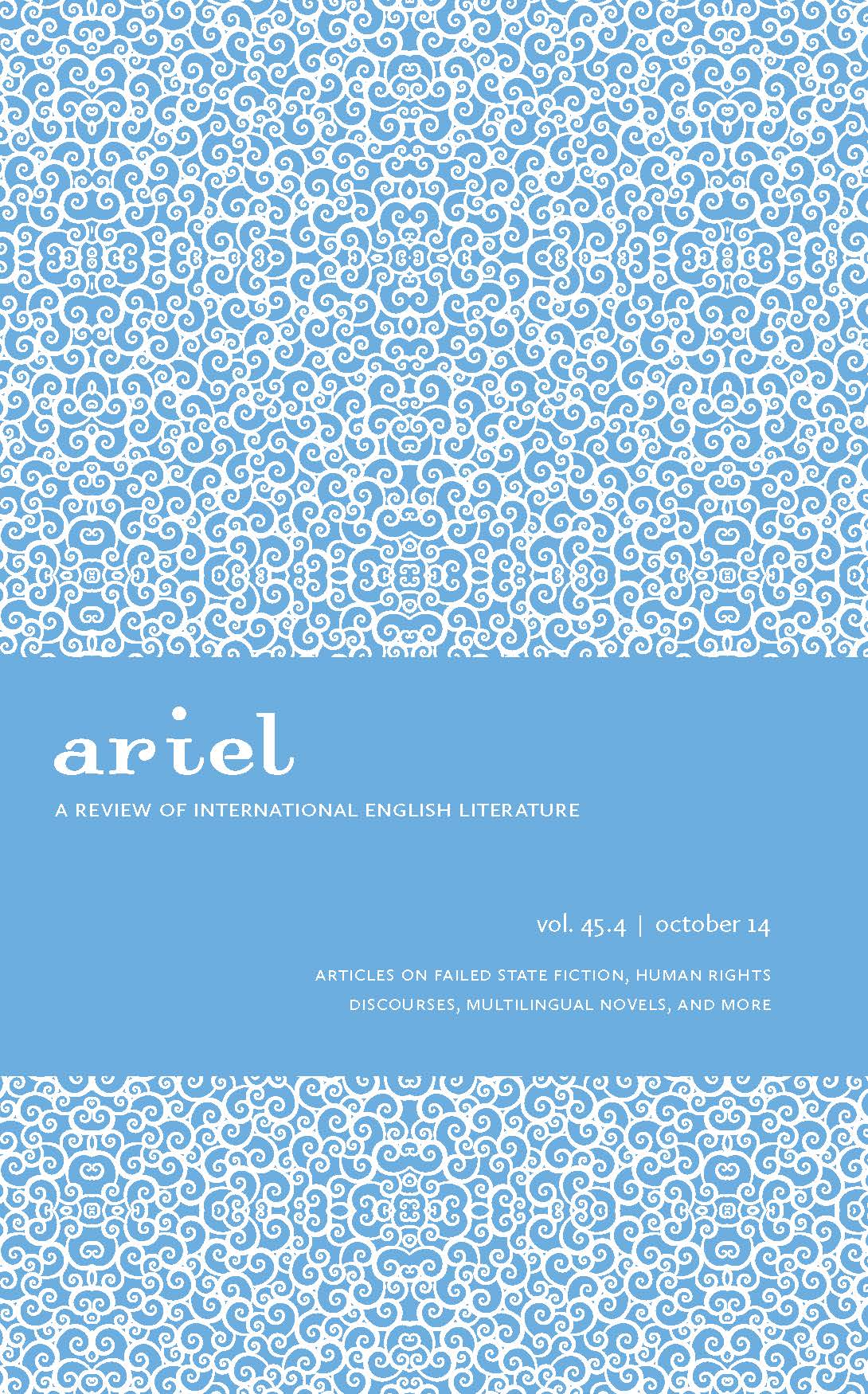Revising the Narrative of Failure: Reconsidering State Failure in Nuruddin Farah’s Knots
Keywords:
Somalia, state failure, narrative, Nuruddin FarahAbstract
This article connects recent research on failed states with Nuruddin Farah’s novel Knots to argue that literature can model alternative forms of state organization as well as point to the limitations of the conceptual term “failed state.” Farah’s novel not only draws attention to the problematically gendered nature of failed state theories, but also mobilizes storytelling as a medium to present imaginative alternatives to the traditional nation-state model that the UN has tried to instate in Somalia. Both the recovery of Cambara’s family home and the play performed within its walls are made possible by the Women’s Network for Peace, a grassroots collective of women whose members are based primarily in Mogadiscio but extend transnationally as well. I offer a reading of Knots that not only concurs with critiques of “failed state” as a concept, but also suggests the Women’s Network as an alternative model for governance in the absence of centralized government. Knots begins to revise the narrative of failure in Somalia by portraying a metric of “success” within Somalia, a country much-maligned as a failure, that prevailing considerations of state failure dismiss.Downloads
Additional Files
Published
2014-11-26
Issue
Section
Articles


